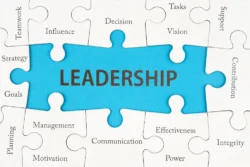Key Highlights
What are the leadership qualities?
The qualities of leadership are often hard to define, but the five most common ones are charisma, vision, innovation, strong persuasive skills, and interdependence. A leader’s traits will be different depending on the type of leadership role they have or their company size. But these core qualities, all exist in every form of leadership, no matter what the specifics may be.
Nevertheless, these are just some of the different qualities of leadership that are needed to make a good leader. There is also the ability to be creative and innovative when problem-solving, not just to focus on what has happened in the past but also on what may happen in the future. This involves having foresight and being able to look at every eventuality leading up to any situation where a decision needs to be taken. This can be quite a long process but this must be done, so that appropriate decision can be made.
There are also decision-making skills that need to be used when making the best options available, for example, getting the most out of a situation. There are lots of gray areas where there isn’t an obvious answer to what should be done next, this is where leaders need to think about the possible consequences of both choices and weigh up whether one option may be better than another. They need to be able to anticipate what may go wrong and have the ability to think about the possible outcomes so that they can plan for the future.
A good leader also needs to be able to motivate others, not just themselves, so that they can move forward together. This is a quality that will help them unite their team or group of people and get everyone working towards a common goal. If everyone is motivated in their work, then productivity will increase and there will always be a better chance of succeeding in any task they are undertaking. Below are the qualities that a leader must possess:
1. Charisma
Charismatic leaders are passionate, persuasive individuals who are good at convincing others that their ideas are the right ones. Think of Richard Branson. He’s an unconventional leader, but he is also charismatic and good with people, making him a perfect fit for his company Virgin.
2. Vision
Visionary leaders have a clear goal they want to achieve and they know how to achieve it. For example, Bill Gates has a vision of making computers available to the masses, and he is working hard towards that vision every day.
3. Innovation
Innovative leaders are constantly thinking of new ways to implement ideas and strategies in the workplace. They are often one step ahead, and know-how to motivate others to engage in an innovative work environment. Think of Steve Jobs, who implemented a lot of creative solutions in his companies Apple and Pixar.
4. Strong Persuasive Skills
Strong persuasive skills allow leaders to persuade people to do what they want them to do, whether it be joining the company or doing something else entirely. Bill Clinton is known as one of the most eloquent politicians in modern history. He was also a strong leader, who could convince people to join his side during the Monica Lewinsky scandal.
5. Interdependence
Interdependent leaders rely on their employees. They are not looking for someone else to fix issues or make decisions for them, which allows them to trust the abilities of their workers and value the work they put out. Steve Jobs was good at this by creating a collaborative atmosphere that fostered independence and risk-taking amongst his employees.
How to become a leader? Do you know what it takes to be a leader?
To be a good leader the way you deal with the people around you is a very important aspect if you want them to listen to you. A good leader knows how to communicate with everyone to have the best possible result. This means that any kind of communication requires skills, even in written messages.
Many qualities make someone a good leader, but there are four traits, in particular, not everyone has. They include:
1. Honesty
This is one of the most important qualities that a person can have. If you cannot trust someone then he or she will not be able to lead other people and will lack credibility.
2. Fairness
This refers to a person’s ability to treat everyone equally. This can be very important in a business environment where employees often have conflicts with each other, and being able to make decisions that affect everyone evenly would be an asset.
3. Patience
It is necessary to be patient whenever you are a leader if you want your followers to respect you. Good leaders are often calm, and they know how to control their emotions when things are not going as expected.
4. Understanding
This is also very important because a leader needs to be able to put himself in the shoes of others to identify with their problems and help them overcome them.
5. Intelligence
When everything seems to be a puzzle and nothing’s falling together, sometimes it’s okay to ask for a genius’s help – or turn to your own. But never rely on bad judgment or whimsy alone, because that program you’re interfacing with may not work with you taking time off! (But don’t take time off if it doesn’t work for you.)
6. Diplomacy skills
Don’t take things personally. Try to see the big picture, and not just one side of it. Things may be complicated, but they’re not that complicated.
7. Creativity
Play around with ideas to see where they go; if you haven’t tried something before and can think of a better way to do it, then go for it! (But don’t skip any important steps.)
8. Selflessness
Know what your employees are good at, but don’t make them do it if they’re not. Sometimes you have to be lenient, but there’s no one place where it says that pride is a sin.
If you want to be a good leader, you will need these qualities and you should develop them over time. They are not things that all people have, but they can be learned if you want them. However, it is important to be patient and not try too hard, because if you do this, you may be seen as overreaching and that can harm your reputation.
How to develop leadership qualities in ourselves?
One of the qualities that separate great leaders from their followers are the ability to influence others. To develop these leadership qualities in ourselves, it is best to start by recognizing what makes a good leader, because everyone has them. A good leader is someone who can motivate and inspire people. They also have skill-sets that are required for people in any field or business such as listening skills, problem-solving skills, and being an effective decision-makers. A good leader is understanding, compassionate, and honest.
It is important to be empathetic when dealing with people. Being empathetic means being able to put yourself in other people’s shoes and seeing things from their point of view. Another quality of a good leader is having trust. Trusting your team allows them to follow you without hesitation, which helps in teamwork and accomplishing goals effectively.
A good leader has the courage and the confidence that comes with it. Courage is the willingness to take on new challenges and face difficulties head-on. Being a leader means being courageous in both your personal life and professional life.
Being a good leader means being honest. Honesty is the foundation of trust, which is necessary for a team to work as one. This doesn’t mean being too honest, because it might cause problems in the future, but it means keeping facts that are relevant to the situation in an open manner and communicating them openly.
A good leader knows how to make decisions. Being an effective decision maker means being able to make smart, informed decisions quickly and accurately. The ability to make a decision is important because there are always situations that require quick and right action to move forward in a good way.
Another quality of good leaders is being organized. Organizational skills allow a leader to put things in order so they may be properly handled later on.
How to Improve Your Leadership Skills?
Ever feel like you’re not qualified to lead? Well, it’s time to take charge of your future and get on the path to becoming a great leader. It can be hard to know where that path starts, so we’re here to provide a guide on how you can use these five steps of leadership development to reach new heights in your career. Follow these steps and teach yourself leadership skills today!
1) Study the qualities of an effective leader
A master leader doesn’t just jump in to take charge of a situation – they take the time to learn as much as they can about what’s happening and how best to lead. One of the best ways to develop your leadership skills is through research. Sometimes, you won’t know the right things to do at first, but that’s okay because researching how others have done it will help you figure it out.
2) Use your instincts to lead well
While you’ll want to do some research, it’s important to also use your gut instincts. Like a lion taking over the pride, you’ll need to know when it’s time to take control and guide others without over-thinking what you’re doing. Sometimes, leadership involves taking quick action on your gut feelings and seeing how things work out. If you’re right, great! If not, then still great for learning something new about leadership.
3) Demonstrate your commitment to leadership
Your success as a leader can hinge on your ability to demonstrate you’re committed to what you’re doing. From the amount of research you’ve done to the way, you’ve taken charge of situations, to showing that you care about others every step of the way, demonstrating genuine enthusiasm and commitment will be a key asset in becoming a great leader.
4) Improving Your Usage of Language
People with good communication skills are much more likely to be seen as leaders, and it starts with their language usage. It’s important to be able to speak well, but it’s also important to be able to listen. Listening is often a more important skill than speaking, but it’s easy to take advantage of this and not give others a chance to speak. Be sure to keep an open ear for everyone that you’re working with or leading. You’ll have a lot more information and better understand the problem at hand by listening as much as possible.
5) Improving Your General Knowledge
The more you know, the better off you’ll be. Nobody likes working with someone who isn’t very knowledgeable in a particular area. If you’re working in sales, it’s important to know everything there is to know about the product that you’re selling. If you’re managing a team at work, it will pay off if you know a little bit about each team member that reports to you and their personal history. In short, it’s important to have a base of knowledge and to expand on that whenever possible.
6) Improving Your Organizational Abilities
If you aren’t organized enough, you’ll lose time and money (from mistakes) that could’ve been easily avoided. It’s important to be organized all of the time, whether you’re at home managing your personal life, at work managing your professional life, or in any other situation where having good organizational skills will benefit you. When an organization isn’t functional and efficient, nobody wins.
How do good leadership skills help you in real life and corporate?
Leadership skills are many things, but they include the ability to think critically and make sound judgments. These skills can improve outcomes in a variety of strategic situations, whether you’re in a boardroom or at the grocery store checkout line. Leadership skills can also help you manage your relationships more effectively, which is great for managing your career and reputation as well. And leadership skills are crucial for achieving success in life. In this article, we’ll learn how leadership skills can enhance your career and personal life in all sorts of ways.
Whether you are leading a group in the boardroom, leading a team at work, or running a household, you need to have certain leadership skills if you want to be successful. You need to be able to think strategically and make sound judgment calls. Additionally, you need to be able to motivate and inspire others so that they can go above and beyond for their organization or themselves.
You live and breathe leadership skills every day. Whether you are the director of a nonprofit organization or the CEO of a multinational corporation, you need to work with other people. Good leadership skills will help you build a winning team. Every person on your team needs to be performing at their highest level. If not, then it’s up to you to motivate them until they improve their performance. This can be challenging, but it may also be that one piece in making your organization successful on a larger scale.
But do you know if you have the right leadership skills for your position? Consider these points to see if your leadership style is the right fit for the position you want or need.
Your attitude matters
Leadership is a team effort, and everyone needs to be on board to get things done. If you feel that “it’s not my job,” then other people will feel that way as well and be less motivated to work as a unit.
Final words
Leadership quality is the product of several different qualities. For instance, a good leader needs to be able to communicate effectively, including being clear and having good language skills. They also need to be confident and decisive, which means they will have self-belief but also the ability to make decisions for themselves when necessary.






